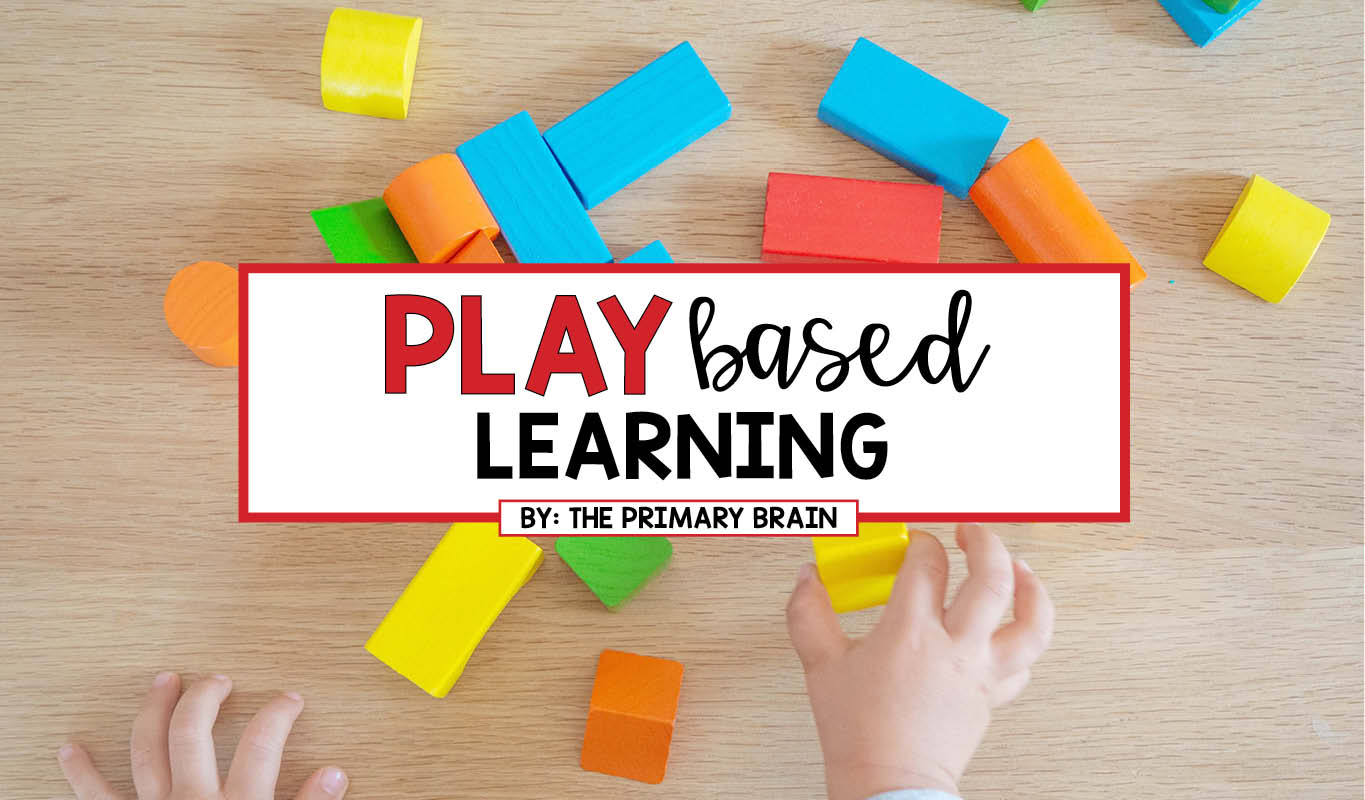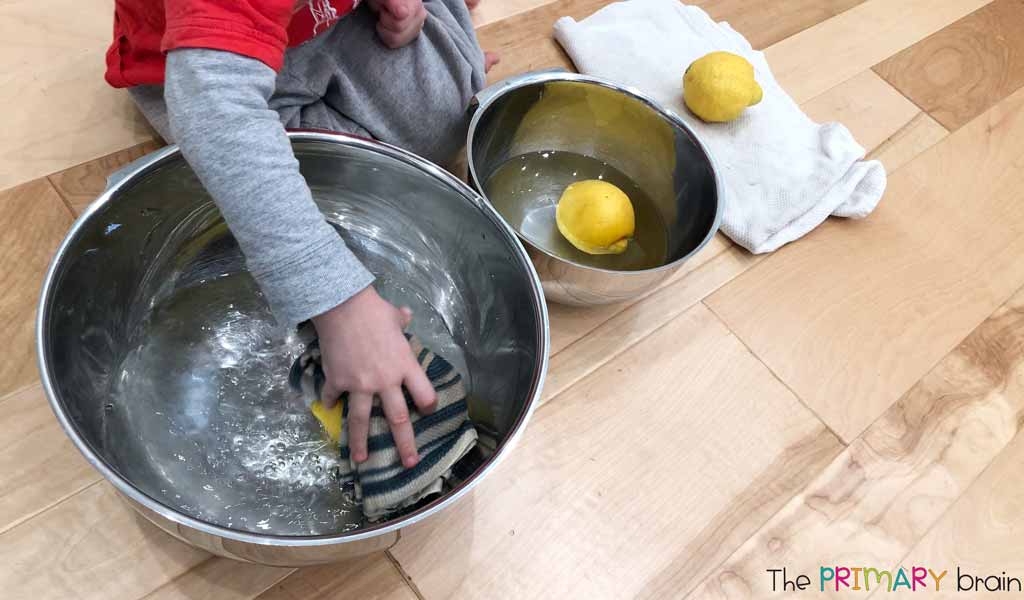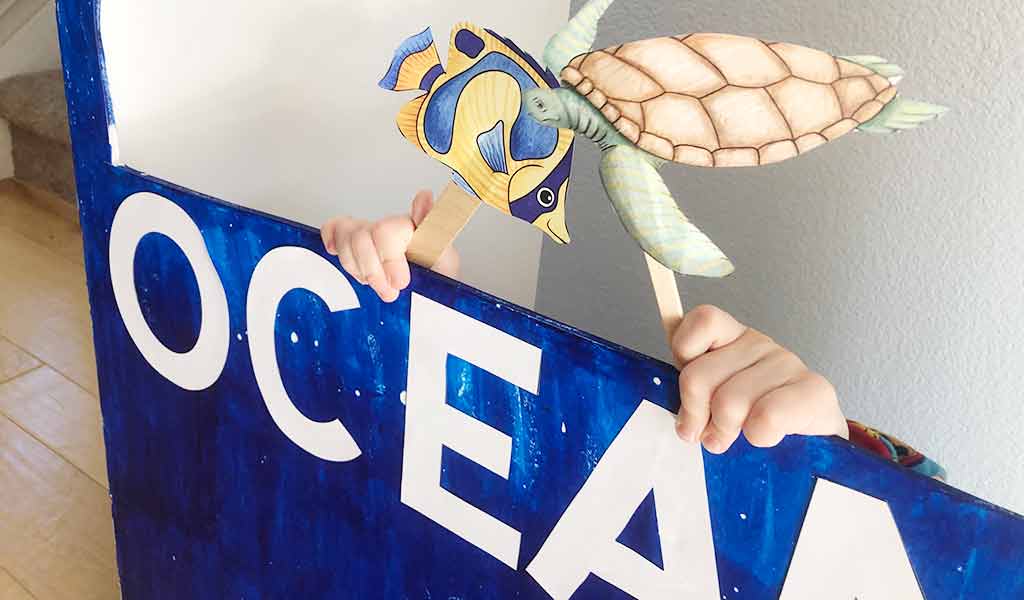Let's Learn Through Play!

What is Play?
Play is a child’s most favorite word, and it’s what makes up their world. But, play is more than just fun, it’s a huge part of a child’s development. We all know that it is important for our children to play. However, as parents, we don’t usually think of play when we think of our children learning. But why? Play is how our children learn. It has a purpose and it’s how they learn to process the world around them.
How Do We Encourage Learning Through Play?

Incorporating imaginative play into our child’s day opens the door to a whole world of learning. Giving open ended materials and letting your child explore the materials inspires them to pretend, create, and imagine. Pretend play in the kitchen, digging in the dirt, and building towers with their favorite blocks are just a few of the ways our kids learn! Unstructured, imaginative play teaches our little ones (especially preschoolers) about cause and effect, social expectations, and builds a foundation for social interaction.
As a parent and teacher, I know we put stress on ourselves to make sure that our kids are constantly learning. But, unstructured play is learning! Not every play-based activity needs to be structured. Children do not need to be directed on how to play with every item we give them to play with. As adults, we can provide the materials, but we do not need to direct the movements during the play activity. That is the best part about it! It’s child-led and simply meant to be FUN!
If you want to learn more about creating play-based activities for your little ones, sign up for my FREE guide here:
How Do We Set Up Success During Play?

Even though play is unstructured, we can still have a goal in mind that we hope our children will learn through the materials we are providing to them. First, we have to decide what skill we are hoping our children will learn through the play-based activity. Are we hoping for social skills, academic concepts, or independence? Sensory bins are amazing for engaging those teeny tiny fine motor skills, while also creating a scenario for imaginitive play. Giving a child a bin of water with measuring cups with no direction can become a kitchen to them. They are “baking”, which is testing their planning and critical thinking skills. When we allow our littles to be in charge of their learning we are giving them the chance to engage all of their senses.
What Should We Play With?
Once you know the skills you are looking to help your children learn, then we have to think about our child’s interests. Do they love to have tea parties, play with tractors, or be a superhero? When we set our children up with materials they are interested in, this will set them up for success from the beginning! Here are a few ideas to get you started:
- A Table + Bin of water + Measuring Cups + Measuring Spoons = Lemonade Stand
- Mud in the Yard + Spoons + Cups = Ice Cream Shop
- Plastic Tea Cups + Water = A Tea Party
- Piece of Fabric + Clothespins + Sunglasses = A Superhero Costume
- Tray of Rice + Measuring Cups + Spoons = Pretend Kitchen
- Bin of Rice + Small Animals = A Farm
- Bin of Water Beads + Ocean Animals = The Ocean
- Sheets Over Chairs + A Flashlight = A Campsite
- Crumpled Paper + A Tape Line = The Greatest Snowball Fight EVER
Why Is Play Important and Why Should You Start Playing TODAY?
Using play encourages communication skills, motor development, social-emotional development, and the enhancement of a child’s imagination. You can provide the materials and let your child set the stage of what they want to create with their own imagination. I love watching my kids build an ice cream shop from dirt and buckets when we are playing out in the backyard. I see them working on social skills by taking turns and making decisions with one another. Unstructured play gives young kids a chance to develop freedom and control of their decisions, and it helps them to explore likes and dislikes about themselves. As parents, we also play a crucial role by asking questions that provoke a child’s learning. Asking “Why?” encourages our little ones to have conversations about their play. Children need to have opportunities to explore, create and discover without specific expectations. The benefits are endless! If you begin playing with purpose, I bet you will be surprised with some of the things your kiddos can come up with. They may be little but they have big imaginations!
Next Steps
If you want to continue this conversation about play, you can join my Toddler School Learning Community on Facebook for lots of fun activities to implement with your children right away!

This post may contain Amazon affiliate links. I earn a small commission each time someone makes a purchase through one of my affiliate links, which helps to support The Primary Brain blog. As always, I only recommend products that I love and all ideas shared are my own.
Written on January 26th, 2022 by Laurin Brainard